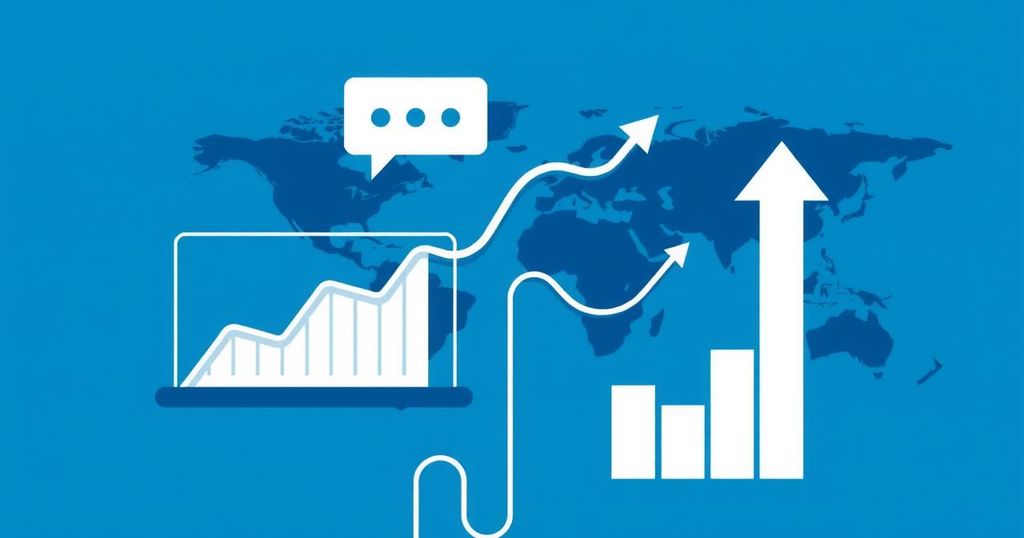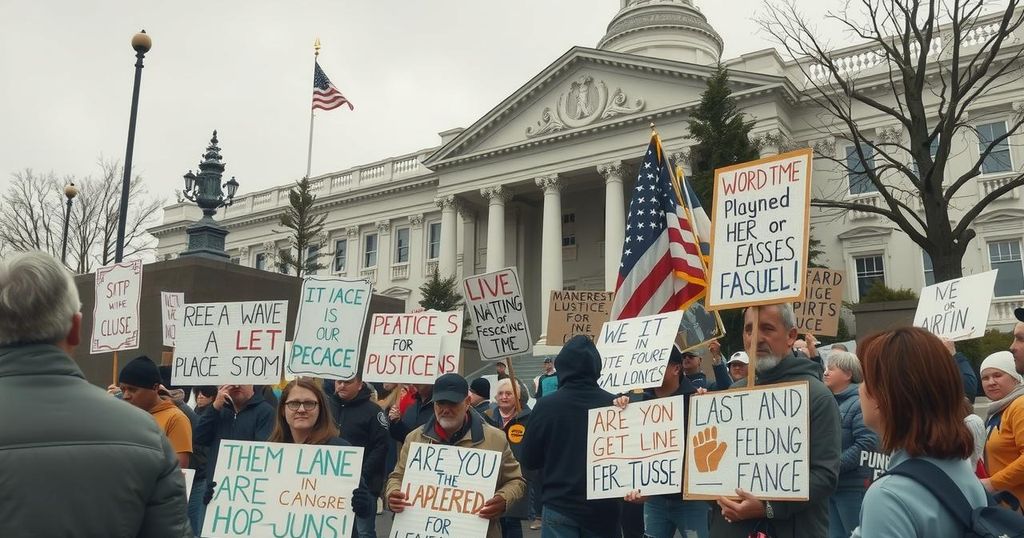The conflict in the DRC has escalated as the M23 rebel group claims control of Goma, raising fears of a regional war with accusations of Rwandan military involvement. The M23, formed from ethnic Tutsis, alleges neglect by the DRC government. The takeover of Goma poses severe risks to civilians and could exacerbate human rights abuses and humanitarian crises.
The conflict in the Democratic Republic of Congo (DRC) has intensified, particularly with reports of the M23 rebel group claiming to have seized control of the vital city of Goma. This situation raises concerns about a broader regional war, as Rwanda is accused of backing these rebels, further complicating the humanitarian crisis evident in the escalating violence that results in numerous casualties daily.
The M23 group emerged from a prior conflict resolution in 2009, which had aimed to address the inclusion of ethnic Tutsis within the Congolese government and military. Discontent with the DRC government’s failure to fully fulfill the peace agreement prompted M23 to resume its insurgency in 2022. Their mandate, they claim, involves protection of Tutsi interests against Hutu militias, notably the Democratic Forces for the Liberation of Rwanda, which comprises Hutus that fled post-genocide Rwanda.
However, this conflict bears deeper implications as critics argue that the actions of M23 serve as a façade for Rwanda to enhance its economic and political dominance in eastern DRC. Control over the Rubaya region—with its substantial coltan deposits—provides M23 with significant financial gains, estimated at $800,000 monthly from taxes on production.
Rwanda’s involvement in the conflict is markedly contentious, with accusations of its military supporting M23 rebels. Reports suggest that Rwandan troops are operational in the region, equivalent to an invasion, violating the sovereignty of the DRC. As per a United Nations report, Rwanda’s commanding influence over M23 further implicates them in the actions of the rebels.
The strategic importance of Goma cannot be overstated, as it is a hub for trade and humanitarian efforts, housing approximately two million residents. A precarious situation arises as Goma faces the threat of being overtaken, which could severely jeopardize the safety and rights of civilians, exacerbating existing human rights violations in the area. With diplomatic relations now severed, the DRC’s declaration against Rwanda stands to escalate tensions into a full-fledged regional conflict.
The Democratic Republic of Congo has endured prolonged conflict, characterized by a myriad of rebel groups with varying objectives. The current crisis envelops the M23 group, which embodies historical ethnic tensions, particularly surrounding the Tutsi minority. Furthermore, the international dimension of this conflict, notably the involvement of Rwandan forces, complicates the peace efforts and fosters fears of a broader regional conflict, igniting severe humanitarian implications for the civilian population.
In summary, the conflict in the Democratic Republic of Congo is marked by renewed violence and intricate ethnic tensions, notably involving the M23 rebels and allegations of Rwandan military support. The potential fall of Goma holds grave repercussions for both regional stability and the humanitarian situation, raising pressing concerns for the international community as diplomatic ties deteriorate. It is crucial to monitor developments as the situation evolves with potential ramifications extending beyond the DRC’s borders.
Original Source: news.sky.com




